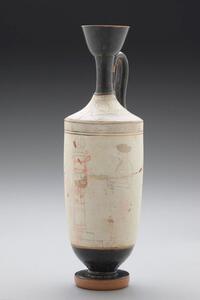Classical Art and Archaeology
 Classical Art at Yale stands out in its integrative approach to the study of the art and material culture of the ancient Mediterranean and beyond. The Program in Classical Art and Archaeology pushes students to consider images and words as equally valid sources for uncovering ancient experiences of the world, and thereby prepares students to answer emerging questions in new and exciting ways.
Classical Art at Yale stands out in its integrative approach to the study of the art and material culture of the ancient Mediterranean and beyond. The Program in Classical Art and Archaeology pushes students to consider images and words as equally valid sources for uncovering ancient experiences of the world, and thereby prepares students to answer emerging questions in new and exciting ways.
Scholars of ancient art trained at Yale are exposed to a range of theories and methods that have been employed to write about the art and visual experience of the ancient Mediterranean in various spheres. They are encouraged to pursue creative research that is object-oriented and contextually informed, concerned with the actual matter from which something is made and the ways that it would have been understood in the past. Ample opportunities are provided for the in- person study of ancient art and its later reception both on the Yale campus, including at the Yale University Art Gallery, The Institute for the Preservation of Cultural Heritage, the Beinecke Library, and the Yale Center for British Art, and museums in the US and abroad.
The program is designed to allow students to develop their own areas of expertise at the highest level, encouraging students to broaden their studies through classes in related fields (e.g. history, anthropology), the art of other periods and geographies, or participation in field projects. It is expected that students acquire a broad and deep knowledge of the material culture of the ancient Mediterranean and adjacent areas through classes offered and independent studies. This expertise, honed for and assessed by the Qualifying Exams, serves as the foundation for a doctoral candidate’s dissertation research.

The research interests of the faculty in ancient art at Yale span many periods and geographies (and are constantly expanding) and include core interests in the lived experience of material culture among different populations across the ancient Mediterranean, and the visual culture of religious life from Archaic Greece to early Christianity. Students seeking to pursue research related to topics, such as sacred objects, votive gifts, the representation of the divine, art and ritual, or the historiography of the field may be especially stimulated by the expertise of the faculty.